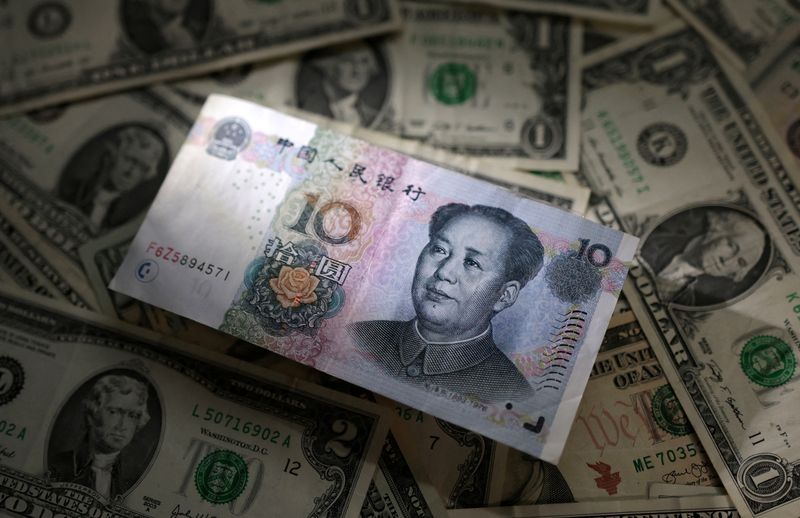Select Language

By Kevin Buckland
TOKYO (Reuters) - China's yuan slumped to a record low in offshore trading on Monday, while Mexico's peso and Canada's dollar tumbled to multi-year troughs after U.S. President Donald Trump slapped the countries with tariffs, triggering fears of an escalating trade war.
The U.S. dollar's gain was broad, with the euro also dropping to a more than two-year low and the Swiss franc - despite typically acting as a safe haven - sliding to the weakest since May.
Canada and Mexico immediately vowed retaliatory measures, and China said it would challenge Trump's levies at the World Trade Organization.
Cryptocurrency bitcoin fell back below $100,000 to its lowest in nearly three weeks.
"The surprise for markets ... is that Canada and Mexico retaliated immediately and that others, i.e. China and the EU, may follow their lead, resulting in a sharp contraction in global trade," said Tony Sycamore, a market analyst at IG.
"The starting date of U.S. tariffs on Canada, Mexico and China of Feb. 4 was also much sooner than many had anticipated."
As Trump had promised last month, the United States hit Canada and Mexico with duties of 25% and China with a 10% levy, calling the measures necessary to combat illegal immigration and the drug trade.
The tariffs, outlined in three executive orders, are due to take effect 12:01 a.m. ET (0501 GMT) on Tuesday.
Trump's move was the first strike in a what could be a destructive global trade war that would result in a surge in U.S. inflation that would "come even faster and be larger than we initially expected," said Paul Ashworth of Capital Economics.

